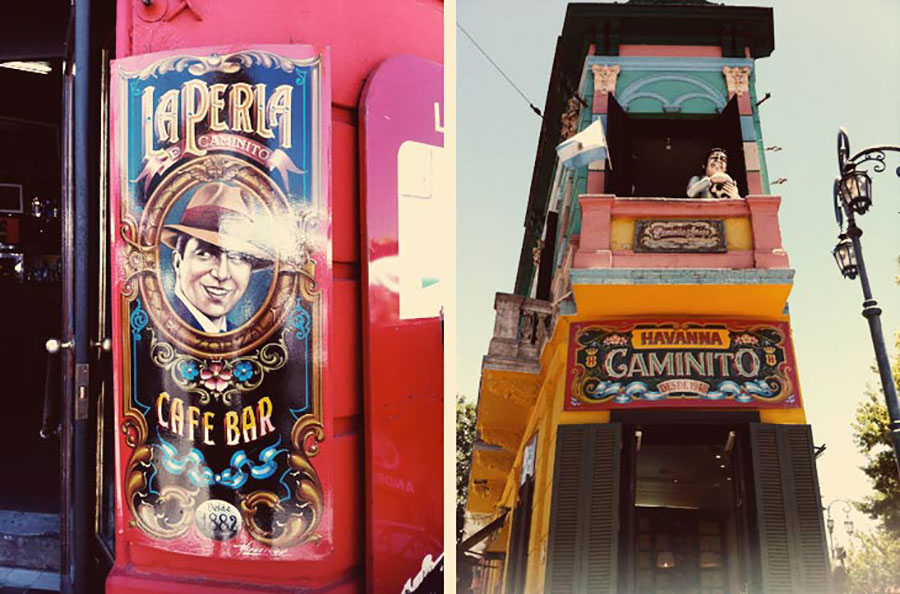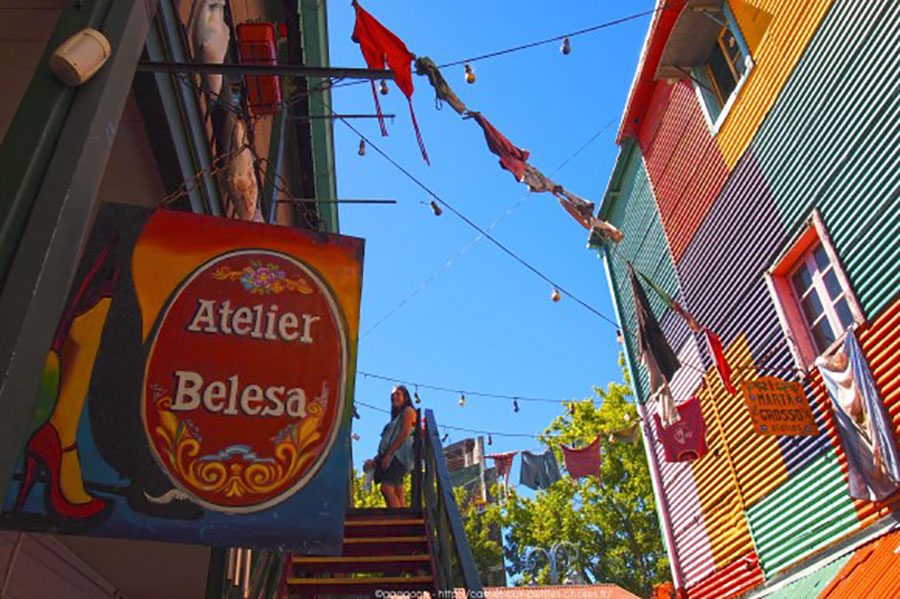With nearly 200 countries in the world and countless communities, why do we all end up visiting the same tourist-infested places?
At 28, when she started her travel company, Elvira Museri was already a habitual traveller. Despite the thrill of seeing new places in countries they’d never seen before, she and her husband started feeling as if they were in a giant tourist trap.
The couple visited the same places that everybody else had visited, and took their travel advice from the same websites and guidebooks as all the other travelers they met. Meeting locals and seeing inside their homes was out of the question, made more difficult by the foreigner clothes they wore and backpacks slung over their shoulders, which marked them as strangers. Tour guides sometimes helped with introductions but it got Museri thinking about how best to meet local families and share a meal with them.

Realizing that the same phenomena happened in her home country, Argentina, Museri (pictured above) started researching responsible tourism and within three months of returning from yet another familiar-looking trip she formulated a plan. Museri now runs Andara Travel from an office in Buenos Aires, helping hundreds of people discover a deeper and more responsible travel experience every year.
Her career started in social work and political science and she completed a stint in the charity sector for seven years before starting Andara Travel. “I wanted to give people an opportunity to meet local people and get to talk to them,” she says. It works equally as well in big cities as it does in rural villages. In fact, Museri decided to start her business in central Buenos Aires in one of the city’s most famous streets, Caminito; the very idea she was hoping to avoid.
“The street personifies Argentina to many tourists,” says Museri. “It’s only 100 meters long and there’s nothing really to see in my opinion, so we started exploring the neighborhood behind this street,” she says. They discovered a wealth of social and art programs that they added to their new travel itinerary. Andara Travel now offers visits to indigenous Guarani communities in the Iguazú rain forest, where they learn about jungle resources, medicinal plants and belief systems, while those looking for something more active can take private tango lessons at real milongas (tango ball rooms) in Buenos Aires. A visit to the Mandoza winelands won’t have you sipping Chardonnay in an easy chair either, you’ll find yourself learning about wine culture first-hand – by picking the grapes.
Museri has found a unique way of combining her social work with tourism that is now seeing growth of between 200-400 percent a year. Even more remarkable is that she began Andara Travel at the age of 28.
Aligning herself with the World Wildlife Fund and being the founder of the Argentinian Responsible Travel Association has certainly helped to foster trust with her clients and to align her business with broader, internationally recognized values around conservation and sustainability.
People began to notice from the start. Lonely Planet listed them after only one year in business, helped in part by the fact that nothing like Andara Travel had ever existed before.
Museri typically sends her clients a draft proposal for discussion on their trip. There’s no set package tour conveniently bundled by self-serving holiday resorts in Museri’s world. She sometimes refines up to five versions of a trip until she finds one that fits the client’s expectations. Many approach Andara Travel with no idea of where they want to go.
Museri doesn’t sit in an office all year round either, choosing to make at least two trips a year to new destinations or existing one’s on the itinerary that they want to check on again. Keeping tabs on their supply chain of operators, destinations and guides is particularly important in her remodeled tourism company. “We had real problems when we started,” she says. “Because we couldn’t find anyone with the same values as us. The customers weren’t happy and we weren’t happy either,” recalls Museri.

Now with an established reputation as a trusted tour operator she invites all her new partners to join the Argentinian Responsible Travel Association, inspiring them to get more involved in sustainable tourism. “In many instances they’ve already been practicing sustainable tourism, yet just didn’t know it yet, and the amazing benefits it can bring to their business,” says Museri.
Not fazed by the rise of online holiday and travel websites, Museri is of the opinion that much value can be found in a curated vacation that delivers the best local experience, while saving up to 40 hours of research. “What’s the big deal about just selling hotels?” she says. “Delivering an experience is a far more rewarding pastime for us.”
In an age of cheap air travel, that allows people to see the world, discover cultures and learn about the rest of humanity, an obvious dilemma arises: carbon footprint. “That’s why we call ourselves ‘responsible travel’ and not ‘sustainable travel’,” says Museri. “If we were sustainable, we shouldn’t accept any traveler to Argentina arriving from more than 800 miles away. Obviously we can’t do that, it’s not realistic.”

Ninety-five percent of Andara’s travelers come from the U.S., Australia, Europe, Canada and New Zealand, making long trips to get to Buenos Aires. “We explain to our clients that they should make the best choices available at their destinations to lessen any further environmental impact,” says Museri.
“Hotels will ask you to refrain from changing your towels and bed sheets in your room, which is okay, but they also do this for commercial reasons. In addition, a hotel should have some type of water recycling and garbage separation. My biggest enemies are the amenities. I can’t believe that hotels still give you shampoo in little plastic bottles, it’s incredible.” Museri suggests refillable containers and biodegradable products instead. She also discourages frantic hopping around, trying to spend two days at each destination and flying from place to place.
Every time Museri feels the need to re-charge her batteries and re-confirm she’s on the right track she visits the NGOs she began with. She sees the heads of these charities, struggling in terrible situations. “They get up and continue every day and for me that’s a big part of my inspiration.”
“To share finances and knowledge with your team might seem counter-intuitive to running a business, but I’ve partnered with some of my team members and consider this the best type of leadership,” she explains. A former employee is now a 15 percent shareholder of Andara Travel and has helped boost the company growth. The team of eight now makes monthly payments to dozens of charities that form part of their tourism network. At the outset Andara sent only two travelers a month to these charities. They now receive between 50 to 100 travelers, and are making a decent income from it.
“The team is so much wider than what we have in our office,” says Muresi.




































